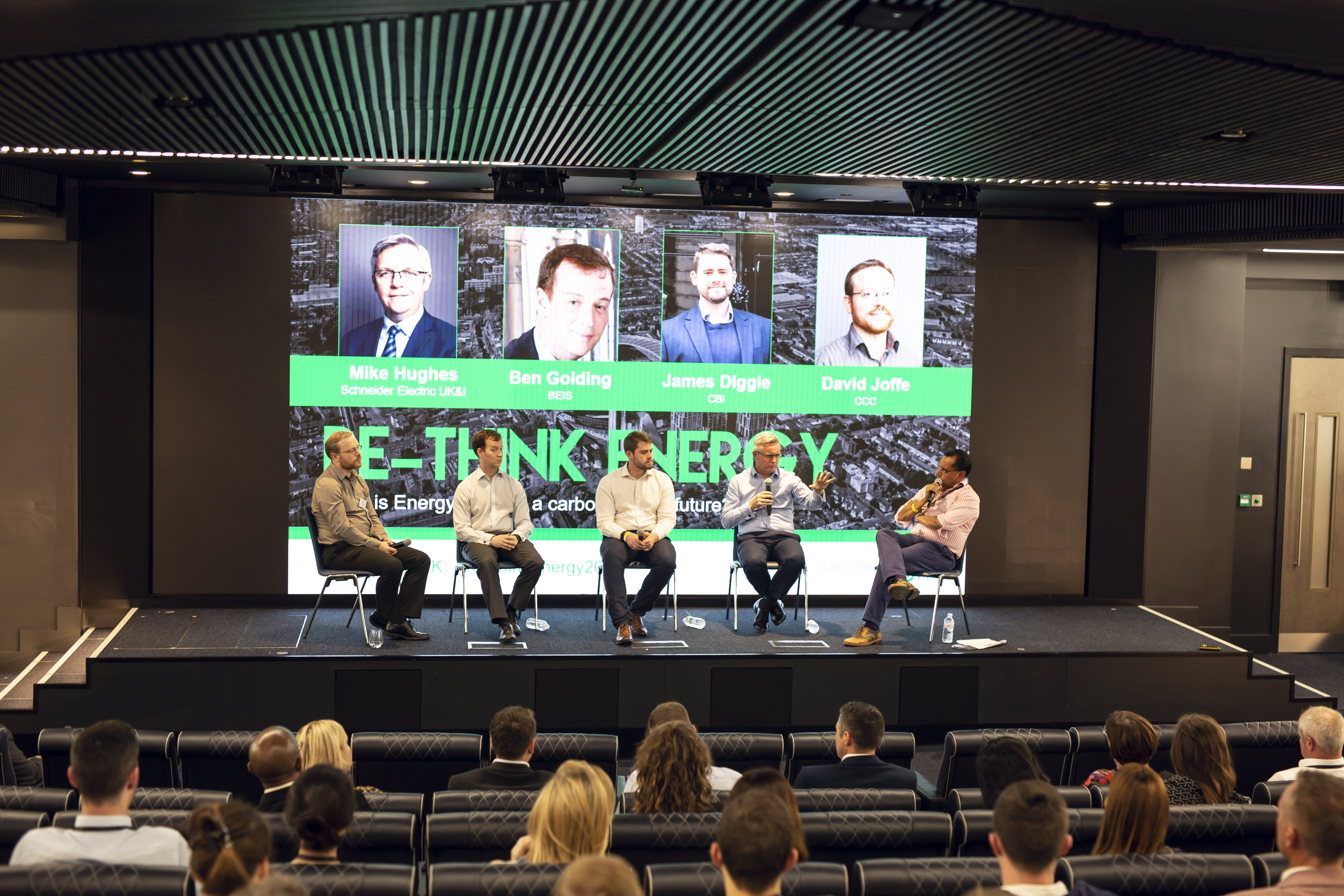Schneider Electric UK has launched its ‘Rethink Energy’ initiative, a programme which aims to change business, consumer and government attitudes to energy waste and help combat climate change.
Whilst other forms of waste such as plastics, fast fashion and food are highly visible, energy is frequently overlooked. A Schneider Electric commissioned study of 2,000 UK adults and over 600 UK businesses revealed that just 10% of consumers want to do more to curb their current energy use, while 74% believe they already do enough.
In the same report, 68% of business leaders reported their organisations wasted energy, particularly in the form of inefficient building and office space. Under half (43%) of company chiefs also shared their organisation had not implemented any measures aimed at tackling these inefficiencies in 2018.
To launch its initiative, Schneider Electric held a panel debate at Tottenham Hotspur’s new stadium, one of the world’s most energy efficient stadiums. Schneider Electric is THFC’s official energy management partner.
The debate focused on three key areas:
- The role for energy in achieving a zero-carbon economy by 2050
- £1 trillion price tag – cost or opportunity
- What will drive change in the UK’s demand for energy
The panellists included:
- David Joffe, Team Leader at theUK Committee on Climate Change
- Ben Golding, Director, Energy Efficiency and Local,Department for Business, Energy & Industrial Strategy
- James Diggle, Head of Energy & Climate Change,the Confederation of British Industry (CBI)
- Mike Hughes, Zone President,Schneider Electric UK & Ireland
Mike Hughes, Zone President, Schneider Electric UK & Ireland comments, “We need to bring energy front of mind. The market needs to take an activist approach to advocate for and instil efficiency and build an investment mindset if we are to achieve the 2050 net zero goal. As energy waste becomes more visible, businesses will increasingly be held accountable.”
He continues, “HM Treasury recently suggested it could cost the UK around £1 trillion to achieve carbon neutrality by 2050, but it’s not about cost, it’s about huge savings. Sustainability is a cost that pays for itself and technology and innovation will be key to meeting the energy efficiency challenge.”
Also speaking at the event, David Joffe, Team Leader at the UK Committee on Climate Change says,“How do you encourage people to change their behaviour? 1) give people enough information to make decisions, 2) make it a desirable (almost competitive) thing to do, 3) enable people to take action”
“Much of the problem with energy efficiency is measurement, you need to know how the measures you have put in place are performing,” he adds.



